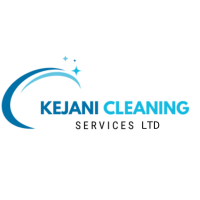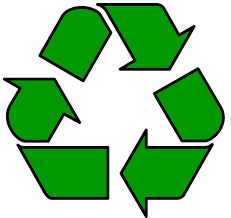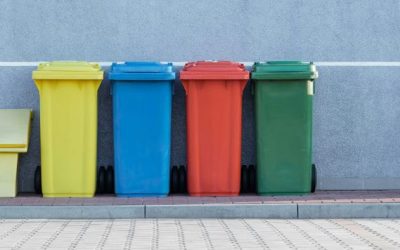As Kenya continues to urbanize and grow economically, one of the biggest environmental challenges it faces is managing the ever-increasing volume of waste. While landfills and illegal dumping remain common, a promising shift is underway—waste recycling is gaining momentum. In this article, we dive into the state of waste recycling in Kenya, the key challenges, emerging solutions, and how businesses and individuals can be part of the change.
🔄 What is Waste Recycling?
Waste recycling is the process of converting waste materials into new usable products. It reduces the demand for raw materials, cuts down on energy use, and decreases environmental pollution. In Kenya, waste recycling plays a critical role in managing municipal waste and supporting the circular economy.
🗑️ Kenya’s Waste Problem at a Glance
According to the National Environment Management Authority (NEMA):
-
Kenya generates over 22,000 tonnes of waste daily, with Nairobi alone producing over 2,400 tonnes.
-
Only about 10% of waste is recycled.
-
The rest ends up in landfills, open dumps, rivers, and streets.
♻️ Commonly Recycled Materials in Kenya
-
Plastics
-
PET bottles, containers, jerry cans
-
Recycled into buckets, fencing poles, and packaging
-
-
Paper & Cardboard
-
Office waste, newspapers, cartons
-
Recycled into tissue paper, egg trays, and paper bags
-
-
Glass
-
Bottles and jars
-
Crushed and remanufactured into new bottles or used in construction
-
-
Metal
-
Aluminium cans, scrap iron, tin
-
Recycled into construction materials, vehicle parts
-
-
Electronic Waste (E-Waste)
-
Computers, phones, cables
-
Recycled by specialized e-waste handlers
-
🌍 Why Waste Recycling Matters in Kenya
-
✅ Reduces pressure on landfills
-
✅ Cuts down greenhouse gas emissions
-
✅ Conserves natural resources
-
✅ Creates jobs in the informal recycling sector
-
✅ Helps meet global and national sustainability goals
🏭 Key Players in the Recycling Sector
-
Informal Waste Pickers – Often the first point of collection, operating in estates and dumpsites.
-
Private Companies – E.g., TakaTaka Solutions, Mr. Green Africa, EcoPost.
-
County Governments – Tasked with waste management infrastructure.
-
NGOs & CBOs – Educating communities on sorting and recycling.
-
Kejani Cleaning Services Ltd – Providing color-coded waste bins, collection services, and promoting sustainable disposal practices.
🔧 Infrastructure Challenges
Despite efforts, Kenya still faces key obstacles:
-
🚫 Lack of widespread waste segregation
-
🚫 Limited recycling plants, especially outside major cities
-
🚫 Inadequate public education on recycling
-
🚫 Poor enforcement of environmental laws
-
🚫 Low demand for recycled products
🛠️ Solutions and Innovations
1. Color-Coded Waste Segregation
Kejani Cleaning promotes the use of color-coded waste bins to improve source-level waste sorting:
-
🔵 Blue for recyclables
-
⚫ Black for general waste
-
🟢 Green for organic waste
-
🔴 Red for hazardous waste
2. Community Recycling Centers
Some estates and schools have started small drop-off stations for plastics, paper, and metals.
3. Plastic Take-Back Schemes
Supermarkets and brands now offer return bins for plastic packaging and PET bottles.
4. Innovative Products from Recycled Waste
-
EcoPost uses plastic waste to make fencing poles.
-
Startup companies are turning waste paper into charcoal briquettes.
📦 How You Can Contribute
-
Segregate your waste at the source.
-
Use recyclable bins from Kejani Cleaning Services.
-
Drop sorted waste at community collection points.
-
Educate your employees, family, or school children.
-
Partner with local recyclers for regular pickups.
💡 Government Initiatives Promoting Recycling
-
Extended Producer Responsibility (EPR) Regulations – Hold producers responsible for the end life of their products.
-
Plastic Bag Ban (2017) – Reduced plastic litter significantly.
-
NEMA Guidelines – Enforcing waste segregation and sustainable management practices.
🛒 Recycle-Friendly Products from Kejani
At kejanicleaning.co.ke, we stock:
-
Color-coded waste bins
-
Pedal and flip bins
-
Wheelie bins (120L–1100L)
-
Bins made from recycled plastic
-
Waste segregation labels and stickers
🧭 The Way Forward
The future of waste recycling in Kenya depends on strong partnerships between the public, private sector, and citizens. With the right tools—like bins, training, and infrastructure—Kenya can turn waste into wealth, conserve the environment, and create jobs.
Need help setting up a waste recycling system for your home, school, or business?
📞 Contact Kejani Cleaning Services Limited today and let’s build a cleaner Kenya together.




0 Comments